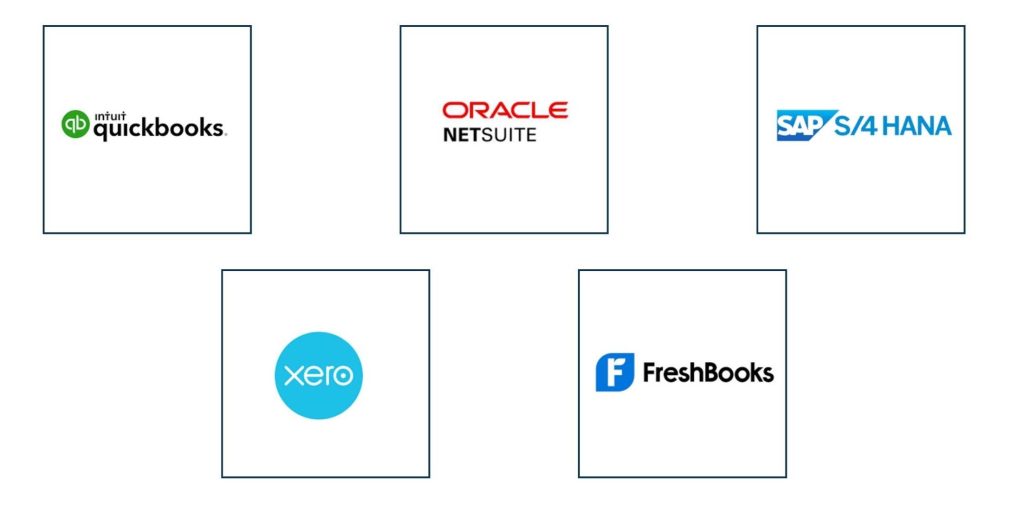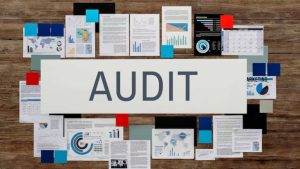Introduction
This is no longer the digital age of finance restricted to Excel sheets and physical ledgers. By 2025, financial management software will be the nerve center of corporate and personal finance management, altering the basis for decision-making. A procedure involving manual entry, paper records, and a good deal of human intervention has become an AI-driven ecosystem.
The shift has only accelerated in the pandemic, as companies saw the necessity of automation, real-time reporting, and cloud-based access. Every business and person, big companies, start-ups, freelancers, etc, now relies on a financial platform that can perform all financial accounting vs managerial accounting activities, and meet the needs for both financial planning and wealth management.
In this guide, we will delve into the development, tools, and strategies that have made financial management software indispensable in 2025.
What is Financial Management Software?
Financial management software refers to a digital platform that helps manage various financial transactions and other numbers-related data.

Core functions include:
- Budgets and forecasts: Projections of income and expenses.
- Cash flow monitoring: Maintaining liquidity.
- Automation: Ledgers and invoicing for the small business.
- Regulatory compliance: To ensure your tax filings are accurate and that you are prepared to be audited.
- Performance dashboards: Measuring, monitoring, and managing your business.
Historical evolution:
- 1980s–1990s: Spreadsheets dominated.
- 2000s: Accounting software (QuickBooks, Tally).
- 2010s: ERP and cloud accounting.
- 2020s: AI, automation, and connected finance ecosystems.
Today, organizations are not only using it to record history, but also to use data to make real-time decisions.
Also Read: Executive Resume Writing
Role in Financial Planning and Wealth Management
Combining financial planning and wealth management with software empowers a better way to approach personal and company finances.

Practical applications include:
- Planning for retirement: You’d need to calculate contributions and growth across decades.
- Investment analysis: Track your assets with real-time dashboards.
- Tax breaks: Automatic deductions as well as checking compliance.
- Risk management: Identifying possible financial choke points.
As startups and entrepreneurs use providers like Stessa Bookkeeping Services for their bookkeeping, even the more difficult items, such as reconciliations and tax filing, are run accurately.
Example Scenario: A nascent e-commerce brand leans on financial management software to follow daily sales, anticipate holiday revenue, and automatically scale back marketing spends based on cash flow projection. This balance guarantees the prospect of growth as well as relief from overextension of resources.
Financial Management Software vs. Traditional Accounting Software
Financial accounting vs managerial accounting is what we’re now going to deal with.

Key advantage in 2025:
- Real-time forecasting replaces quarterly-only reviews.
- Automation reduces compliance risks.
- Integration means CFOs and managers, and even entry-level associates, are looking at one source of truth.
Also Read: Link Insertion Services
Tools Everyone In The World Of Financial Management Should Be Using
Entry-level candidates looking to establish a career in finance, advance into more experienced positions.

Top tools are career-critical for a financial management associate:
- QuickBooks Online: Best for SMEs & Freelancers. Known for its ease of use.
- Oracle NetSuite: A complete ERP for mid to large companies, good for deep reporting.
- SAP S/4HANA: The heavy-duty solution for multinational financials.
- Xero: This Cloud-based software is collaborative and eminently suited to small businesses.
- FreshBooks: Best for invoicing and tracking expenses.
Why it matters:
Employers need associates with a multifaceted skill-set, including an understanding of various financial systems and experience in pulling the threads of a story together to create perfect sound bites. An expertise in these tools enhances the chances of employment and provides more options for career growth.
The Future of AI and Automation in the Finance Industry
AI and automation have brought the most wide change in 2025.

Emerging trends include:
- AI prediction: Estimating the results of cash flow and investment for certain outcomes.
- Automatic reconciliation: No need to match entries by hand anymore.
- Fraud prevention: Detection of outliers in real-time.
- Use of blockchain: Transparent and secure transactions.
- ESG reporting made easy: How to automate sustainability.
These developments mirror those in other sectors – consider Records Management Software. Just as document management transitioned from filing cabinets to AI-based indexing, finance tools are progressing from reactive to predictive and intelligent.
Tips for Using the Financial Management Program
The right software is not enough; it needs to be pressed into service efficiently.

Best practices:
- Regular training: Keeps employees informed.
- System integration: Financial tools need to be accessible by HR, CRM, and supply chain systems.
- Personalized dashboards: Every manager needs to view their title KPIs.
- Security procedures: Safeguard confidential financial information against cyberattacks.
- Frequent updates: Be at the forefront of new features.
Mistakes to avoid:
- Over-customization complicates use.
- Not an easy answer, but poor data hygiene is the problem!
- Insufficient training of personnel and thus underutilization.
Case Example: A retail company reduced manual errors by 80% with automation, which saved hours of employee time at work. And a consulting firm optimized tracking of profitability with personalized dashboards connected directly to project results.
Conclusion
When you consider financial management software to be a tool, you miss the point that it is actually the way you will manage finance in 2025. By connecting financial accounting and financial planning to operational accounting and planning, and providing business users with intuitive, AI-powered modeling tools, Planful makes it possible for people in organizations to make better, dynamic decisions.
Businesses can also outsource services to maintain compliance and accuracy. For finance workers, particularly financial management associates, proficiency with these platforms is the ticket to remaining competitive.
As you see with technologies such as Records Management Software 2025, the “how” of efficiency is still being redefined. And the future belongs to those who can adapt, so getting a handle on financial management software is a step toward long-term financial resilience.
Frequently Asked Questions
For individuals and businesses, it takes care of budgeting, accounting, cash flow, and reporting.
Yes. Financial management software combines accounting with features to the likes of forecasting, analytics, reconciliations, and wealth management.
Brands that can prosper, he added, were QuickBooks, Oracle NetSuite, SAP S/4HANA, Xero, and FreshBooks.
Absolutely. Cloud platforms such as Xero and FreshBooks are now bringing the same kind of finance tools relied upon by enterprises to SMEs.
It follows investments, projects, retirement needs, automates taxes, and factors financial goals into performance.
About Us
Tasks Expert offers top-tier virtual assistant services from highly skilled professionals based in India. Our VAs handle a wide range of tasks, from part time personal assistant to specialized services like remote it support services, professional bookkeeping service etc. Furthermore, it helps businesses worldwide streamline operations and boost productivity.
Ready to elevate your business? Book a Call and let Tasks Expert take care of the rest.









